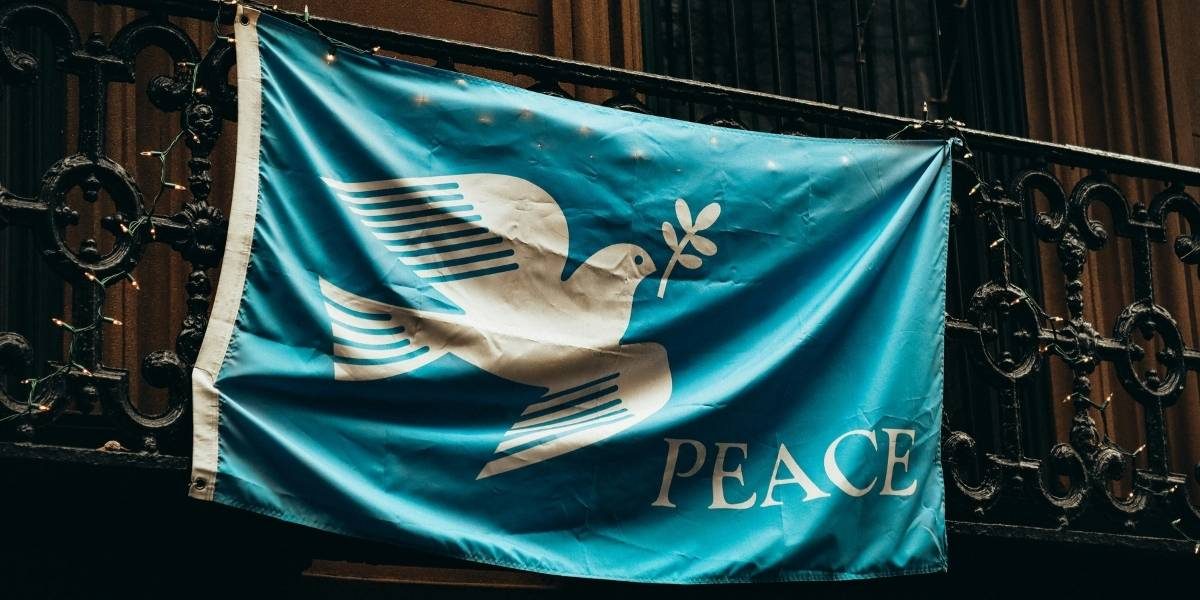In a world often shaped by conflict and division, peace remains one of humanity’s most cherished ideals. But what exactly makes lasting peace possible? The foundation for true and enduring peace lies not only in diplomacy and dialogue but also in a principle that is often overlooked—the rule of law. When countries, communities, and individuals uphold the rule of law, they create a structure where fairness, justice, and order prevail, fostering an environment where peace can thrive.
Read Also: Tech Regulation: How Governments Are Tackling Key Challenges
How Does the Rule of Law Foster Peace?
The rule of law is a cornerstone of democratic societies and international relations. It ensures that everyone, regardless of their status, is subject to the law and that legal processes are applied fairly and consistently. This principle is vital for the creation of peaceful societies for several key reasons.
First, it ensures that justice is accessible to all. When the law is applied impartially, people are more likely to believe that their grievances can be addressed fairly. This reduces the likelihood of resorting to violence or conflict to resolve disputes. In regions where rule of law is weak or absent, citizens often turn to alternative systems, such as vigilantism or militias, to find justice, which in turn fuels conflict and instability.
Second, the rule of law provides a framework for governance, offering predictability in how decisions are made. Political and legal stability allows people to plan for the future, participate in economic activities, and contribute to the well-being of society. In the absence of such stability, fear and uncertainty prevail, leading to an environment where peace is elusive.
What Role Does the Rule of Law Play in Conflict Prevention?
The rule of law is essential in preventing conflicts before they arise. By providing clear, accessible avenues for dispute resolution, it ensures that minor conflicts don’t escalate into violence. When individuals and groups know they can seek redress through legal means, they are less likely to engage in violent behavior.
Consider post-conflict societies, like those emerging from civil wars or ethnic tensions. The establishment of strong legal frameworks and institutions is crucial for reconciliation and rebuilding trust among divided communities. For example, South Africa’s Truth and Reconciliation Commission helped the nation heal from apartheid’s wounds by giving victims and perpetrators alike a legal platform to share their stories and seek justice.
Moreover, strong legal systems can tackle the root causes of conflict, such as inequality, corruption, and human rights violations. Ensuring that laws protect the rights of all individuals, especially minorities, helps prevent the buildup of resentment and social unrest. This approach promotes stability and contributes to a more peaceful environment where violence is less likely to emerge.
How Does the Rule of Law Contribute to Global Peace?
On a global scale, the rule of law is crucial for maintaining peace between nations. International agreements, treaties, and conventions rely on the rule of law to enforce peace and resolve disputes between countries. Institutions like the United Nations (UN) and the International Court of Justice play vital roles in fostering global peace through legal means.
One of the most significant ways the rule of law contributes to global peace is through the establishment of norms and standards that prevent the outbreak of war. The Geneva Conventions, for example, set legal standards for humanitarian treatment in conflict zones, ensuring that civilians and prisoners of war are protected during armed conflict. By making the mistreatment of civilians a violation of international law, these agreements help reduce the brutality of war and encourage peaceful conflict resolution.
Furthermore, international law provides a mechanism for resolving disputes between nations peacefully. Through diplomatic channels, trade agreements, and the use of neutral third-party mediators, the international community can address grievances without resorting to violence. Countries that adhere to international law are more likely to cooperate on issues like trade, human rights, and climate change, contributing to a more peaceful and stable global community.
What Challenges Does the Rule of Law Face in Promoting Peace?
While the rule of law is a powerful tool for promoting peace, it is not without its challenges. In many regions, political corruption, weak institutions, and a lack of resources hinder the effective application of law. In some countries, political leaders may manipulate the legal system to suppress opposition or violate human rights, undermining the principles of justice and fairness that the rule of law is supposed to protect.
Moreover, in conflict zones or areas recovering from war, rebuilding the rule of law is a daunting task. It requires not only reforming legal systems but also restoring public trust in those systems. In places where legal institutions have been decimated or are perceived as illegitimate, citizens may be reluctant to seek justice through official channels.
Internationally, the challenge lies in holding powerful nations accountable for violations of international law. Despite the existence of global institutions like the UN and the International Criminal Court, political considerations often influence how laws are applied, and some countries choose to ignore or defy international rulings. This lack of consistency in enforcement can undermine the effectiveness of the rule of law in promoting peace.
How Can We Strengthen the Rule of Law to Achieve Peace?
Strengthening the rule of law is essential for achieving sustainable peace. This can be done in several ways, starting with the education and training of legal professionals. Legal systems must be staffed with individuals who are committed to justice, human rights, and the fair application of the law.
Additionally, governments must ensure that legal institutions are independent, transparent, and accountable. This includes combating corruption within the judicial system and ensuring that judges, lawyers, and law enforcement officers can do their work without political interference.
Internationally, countries should support efforts to strengthen the global rule of law by adhering to international treaties and norms. By holding violators of international law accountable and providing support to countries transitioning from conflict, the global community can help create an environment where peace is achievable.
Finally, civil society plays a crucial role in promoting the rule of law. Citizens must hold their governments accountable and advocate for the protection of human rights. Grassroots movements, as seen in many parts of the world, can push for legal reforms and help build a culture of peace and justice.
Read Also: How Countries Are Adapting to Global Sanctions
The Role of the Rule of Law in Achieving Lasting Peace
The rule of law is not just a legal concept; it is the foundation of peace itself. By ensuring justice, equality, and accountability, the rule of law creates the conditions necessary for peaceful societies to thrive. Whether on a local, national, or international scale, upholding the rule of law helps prevent conflict, rebuild trust, and foster cooperation. In a world where peace is often fragile, the rule of law remains one of our most powerful tools for creating a more just and peaceful future for all.








